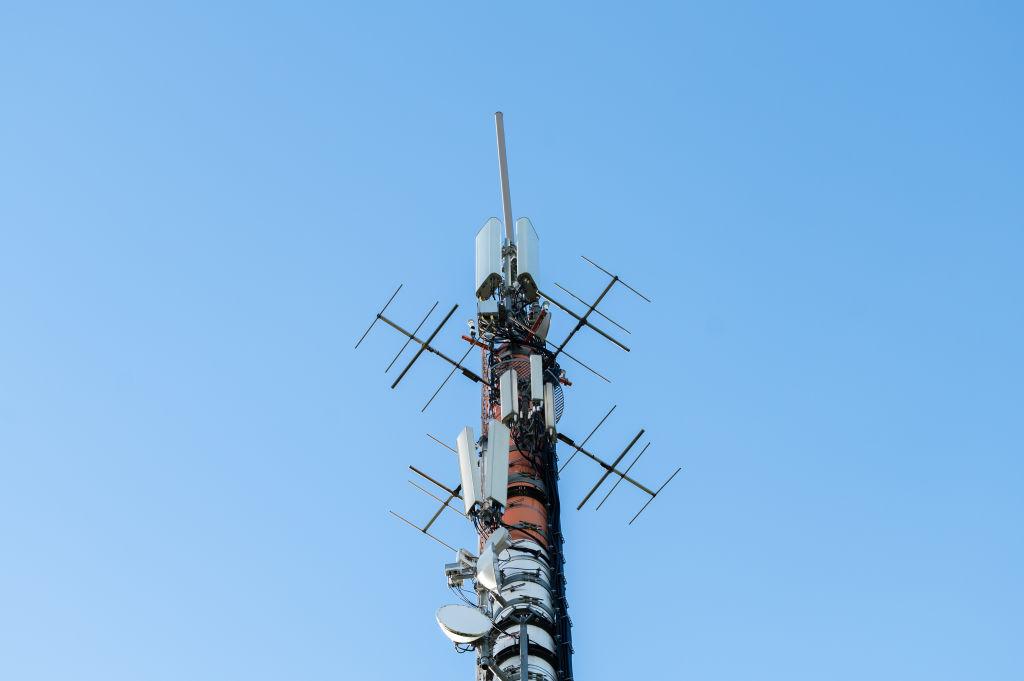
We need to get used to a new concept in international security: tech diplomacy. It means technological collaboration across sectors and between countries, but the simplicity of the idea shouldn’t disguise its importance.
Tech diplomacy is a key tool to ensure that US allies and partners, including Australia, can stay ahead of or keep up with the pacing threat of adversaries, notably China, that are also seeking technological leadership.
It also offers opportunities for commercialisation and the establishment of the rules and norms that govern uses.
Technology lies at the heart of geostrategic competition between China and the US. The US and its allies need to secure advantages in emerging technologies to meet ongoing and rapidly evolving national security imperatives. Western societies are also keen to ensure that producers of bleeding-edge technologies—such as advanced semiconductor chips, artificial intelligence and quantum computing—develop, deploy and adopt tools and knowhow in a trusted manner that protects individual and collective freedoms. Technology diplomacy—bringing together expertise from the three traditionally siloed domains of technology, business and foreign policy to advance national interests—is a tool the US and its partners can use to secure high tech and to counter the weaponisation and abuse of technology by malign actors.
Technology is inherently neutral, neither good nor bad, which is why it’s necessary for like-minded allies and partners to advance it in a trusted manner to ensure that it can’t be easily abused to compromise the basic rights and freedoms of individuals as defined under international law. Collaboration that draws on technology, business and foreign policy ensures that the expertise that drives the R&D interacts with the expertise that drives commercialisation and deployment and with the expertise that drives security goals and international regulation. This model of tech diplomacy ensures that the economic advantages of tech leadership are achieved and that technological development is guided by principles of trust that protect individual and collective rights.
Successful tech diplomacy efforts have already taken place, notably with the deployment of 5G networks. 5G technology built the infrastructure that would underpin the future of connective technology, which could significantly affect national security, rights, privacy and economics. Australia was the first mover in banning Chinese telecommunications giant Huawei from building the nation’s 5G networks. One consideration was the potential for China to abuse the network for surveillance; another was how Huawei was changing market dynamics by offering free infrastructure and locking in countries through dependency. Oher market players couldn’t compete. At the time, Huawei was outcompeting its peers, Nokia and Ericsson, because it was reaping the benefits of spending, supported by the Chinese government, of US$20–25 billion a year on R&D.
Tech diplomacy occurred when efforts led by Australia and allies recognised the shared importance to their national interests of having competitive alternatives to Huawei 5G networks and collaborated, including with industry, to secure them. Notably, efforts by the US, such as the Clean Network implemented by the US State Department, led to collaboration of public-sector and private-sector leaders in 60 counties and 200 telecommunication companies to pursue 5G providers and alternatives to Huawei.
The scale of international public-private collaboration demonstrated by the deployment of 5G technologies worldwide is vital to advancing tech diplomacy and establishing, adopting and sustaining trusted principles to guide the innovation and adoption of other critical and emerging technologies.
AUKUS, the enhanced security agreement between the US, Australia and Britain, is available to advance tech diplomacy efforts. Under Pillar 2 of AUKUS, the partners will engage in advanced capability sharing in areas such as AI, hypersonics, quantum and cyber. Pillar 2 will bring together government and industry across the AUKUS partners to develop and use cutting-edge technologies. This avenue of collaboration offers not only a robust means to accelerate innovation in emerging technologies to counter China’s technological advances; it can also ensure unified leadership in standards-setting and best practice. The close cooperation with industry that AUKUS necessitates can only strengthen the success of tech diplomacy efforts to ensure that those technologies are brought online in a way that doesn’t present a risk to freedom and security.
For Australia, tech diplomacy and its engagement across government, industry, academia and civil society strongly aligns with the whole-of-nation approach defined in the National Defence Strategy announced in April 2024. Only through this level of collaboration can innovation and adoption occur at the pace and scale needed to outcompete China’s strategy of military-civil fusion, which includes China’s acquisition of, and heavy subsidies for, its own tech sector for state purposes.
Independent initiatives, notably the launch of the Tech Diplomacy Academy (TDA) by the Krach Institute at Purdue University in the United States on 30 April 2024, signal the importance of integrating technological, commercial and foreign-policy expertise to guide the trajectory of trusted tech towards advancing freedom, security and prosperity worldwide.
The TDA is an online education platform poised to revolutionise how government, business, tech and civil society leaders are trained at scale on critical and emerging technologies and how to compete and lead in a contested technological and geopolitical landscape. The US government’s support for the initiative (the State Department has announced its adoption of the TDA) affirms the importance of equipping government officials with the knowledge and tools needed to support critical and technology industries and to ensure allied leadership in those sectors.
Trusted partnership and the ability to collaborate without compromising the agility and ingenuity of the private sector are strengths that the AUKUS partners share. Successful tech diplomacy is a key enabler for leveraging those strengths, ensuring that leadership in critical and emerging technologies is secured and that those technologies are brought online in a trusted and sustainable manner that protects the interests and safety of the individuals affected by them.